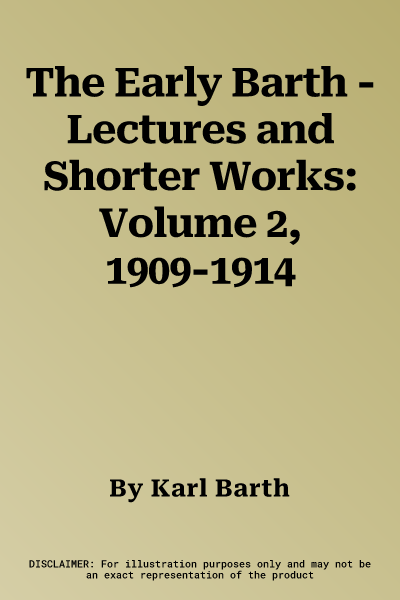Karl Barth
(Author)The Early Barth - Lectures and Shorter Works: Volume 2, 1909-1914Paperback, 17 October 2023

Temporarily out of stock
Free Delivery
Cash on Delivery
15 Days
Free Returns
Secure Checkout

Print Length
365 pages
Language
English
Publisher
Westminster John Knox Press
Date Published
17 Oct 2023
ISBN-10
0664264395
ISBN-13
9780664264390
Description
Product Details
Author:
Book Format:
Paperback
Country of Origin:
US
Date Published:
17 October 2023
Genre:
Christian
ISBN-10:
0664264395
ISBN-13:
9780664264390
Language:
English
Pages:
365
Publisher: